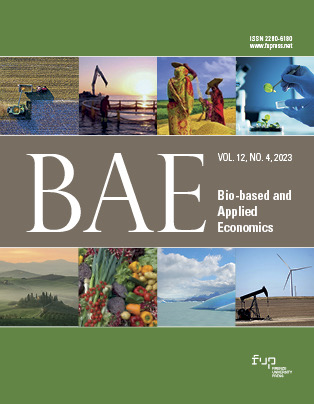Published 2023-12-31
Keywords
- forestry,
- input-output model,
- value added,
- employment,
- greenhouse gas emissions
How to Cite
Copyright (c) 2023 Vineta Tetere

This work is licensed under a Creative Commons Attribution 4.0 International License.
Funding data
-
Horizon 2020 Framework Programme
Grant numbers 773297
Abstract
The bioeconomy is considered a means to achieving a climate-neutral economy as aimed for in the EU Green Deal. For Latvia, the forest-based bioeconomy has the potential to contribute to this aim. An operational definition of the forest-based bioeconomy is needed to calculate its size. This research aims to provide such a definition and to determine the contribution of the forest-based bioeconomy to GDP, employment, and greenhouse gas emissions. The direct and indirect contribution of the forest-based bioeconomy to economic indicators and climate change is identified using an input-output model. The results of the model show that the forest-based bioeconomy contributes 6.4% to GDP and 6.6% to total employment in Latvia. The contribution to greenhouse gas emissions is 4.9%. Furthermore, if CO2 sequestration is included, the forest-based bioeconomy becomes climate neutral.






